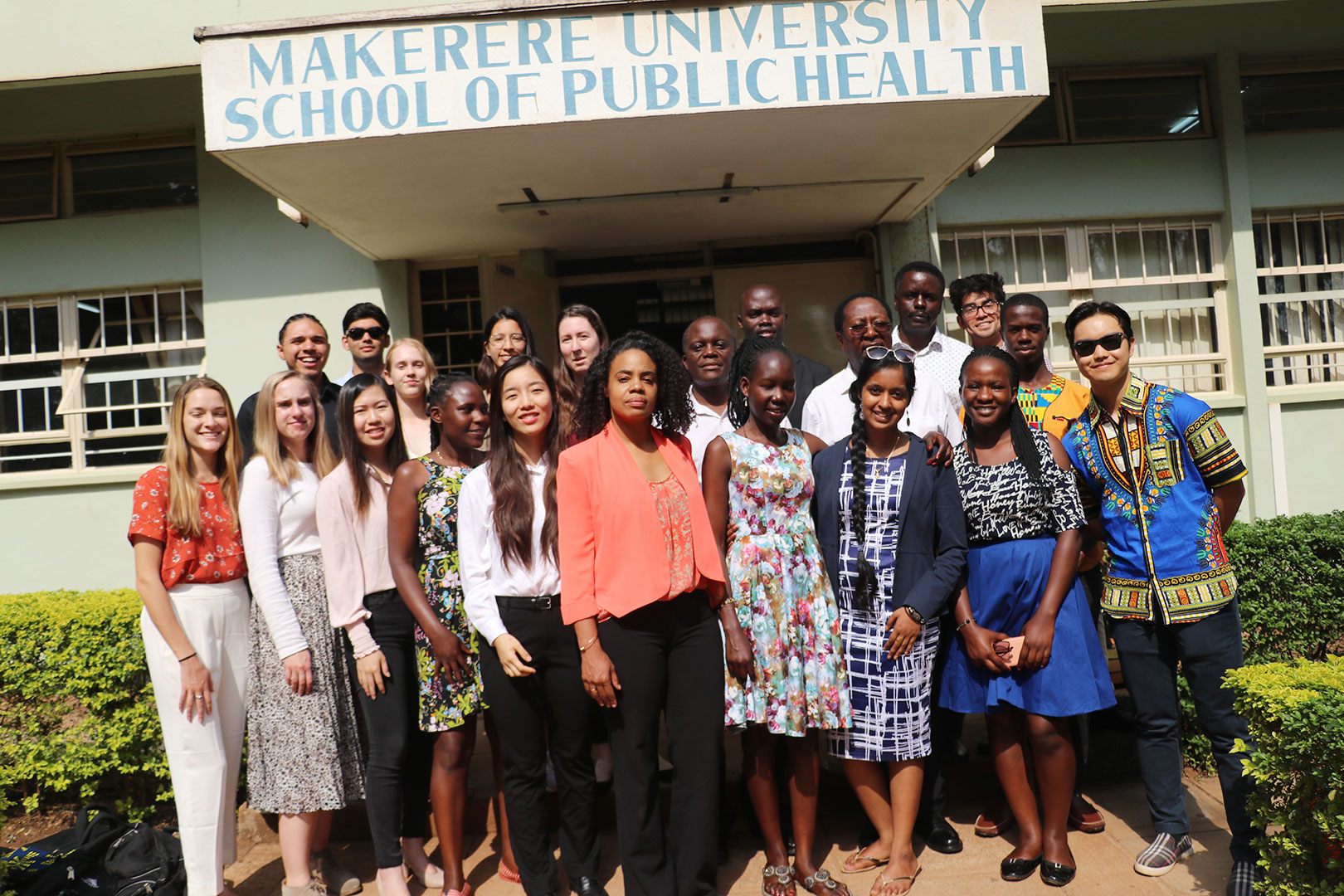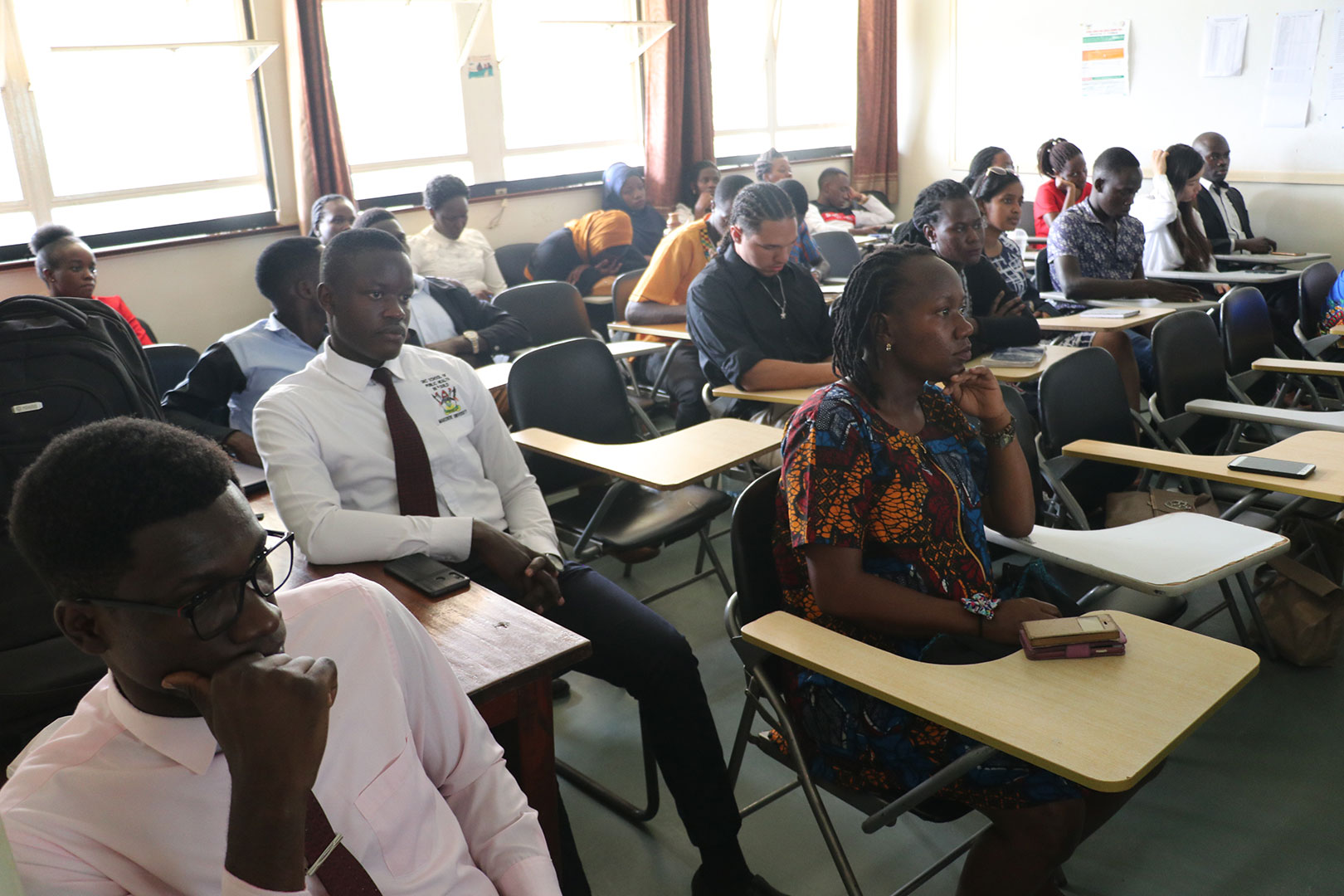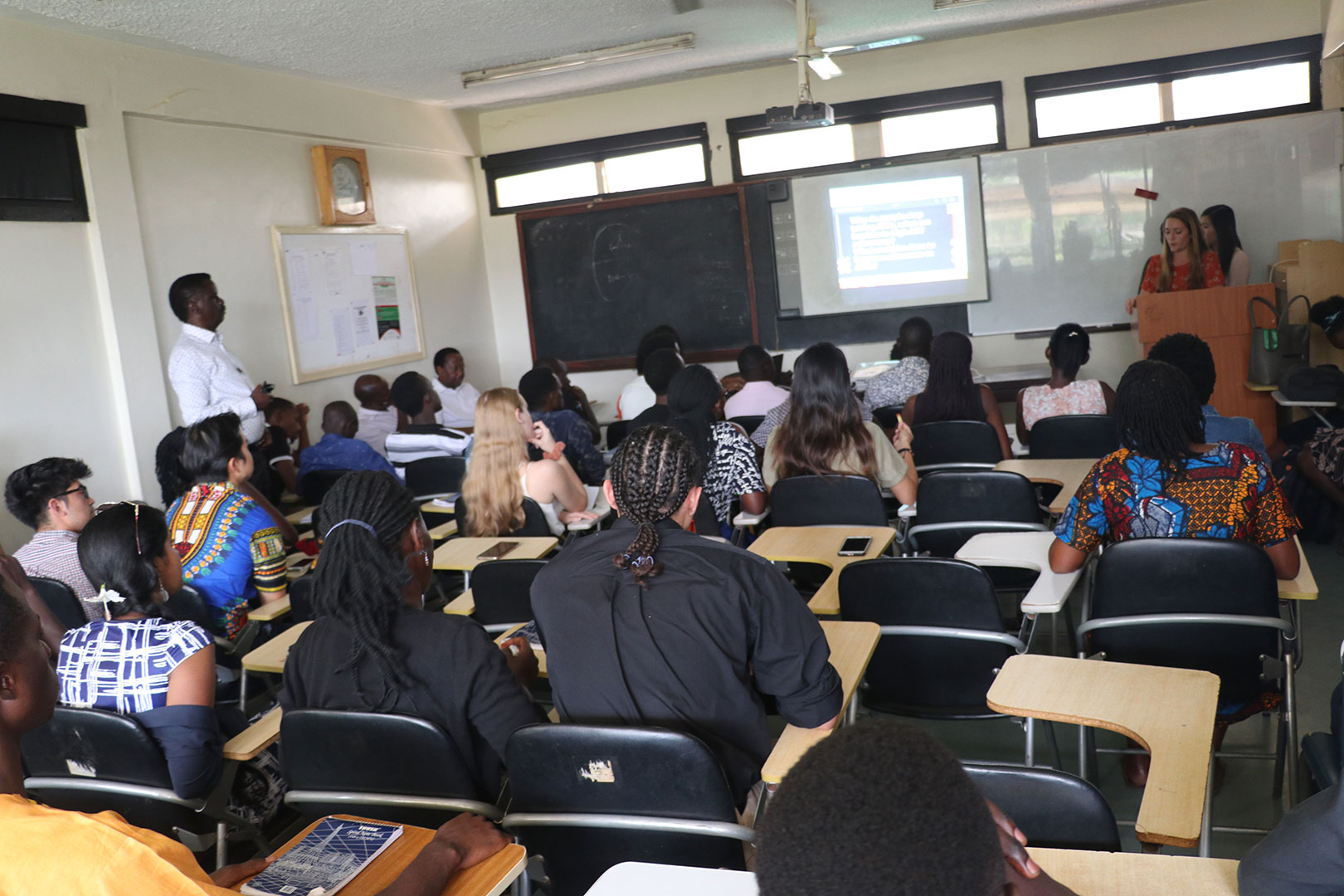
Some of Makerere University staff led by Deputy Dean.Prof.Fredrick Makumbi and JHU-Makerere University students in a group photo after the seminar
Written by Joseph Odoi
Every year we receive a group of about a dozen students from John Hopkins University who are paired with some of our students for a unique peer-to-peer learning experience.
The students went visited both rural and urban settings during their one month stay which culminated into a recent seminar where they shared their experiences from three weeks of field work.
At the seminar, the students made presentations in designated groups on topics including water and sanitation, nutrition, maternal and child health, adolescents, HIV, as well as orphans and vulnerable children.
The students highlighted key public health challenges like lack of space in hospitals, inadequate medical supplies, lack of hand washing facilities, poor waste disposal which pose real life threats to communities.
As part of addressing the challenges, students designed intervention plans with recommendations like need for the empowerment through community sensitization, proper waste management, the need for training on nutrition among others.
Speaking at the seminar, the MakSPH Deputy Dean Prof. Fredrick Makumbi congratulated MaKSPH-John Hopkins team upon a successful peer to peer learning experience which exposed them to public concerns like malaria, mal nutrition, waste management adding that they should draw inspiration from it to design more scalable and sustainable project plan to promote Public Health.
In her remarks, Mieka Smart, the team lead from John Hopkins University was full of praise for MakSPH-Makerere Partnership due to the fact that students are given exposure to public health experiences involving communities.
“Having interactions with communities helps in appropriating human centered design by tapping into what people are thinking, this is what the students were able to encounter,’’ explained Dr. Smart. Besides, she noted that the partnership enables students to network and build long lasting friendship which could help their careers as young researchers.
Suzan Nakalawa a student from MakSPH who was part of the fellowship noted: ‘’During our visit we had an opportunity to attend to patients which was memorable. This gave me inspiration to always go back and volunteer whenever I can. We also visited Lake Mburo National Park which was great.”



